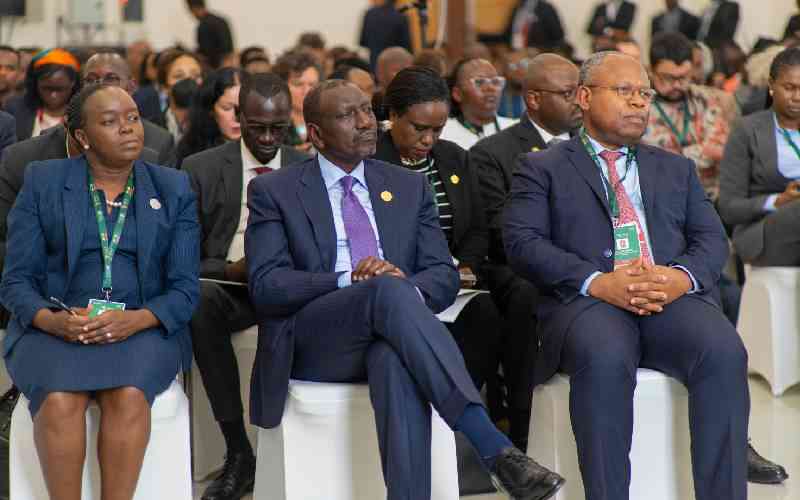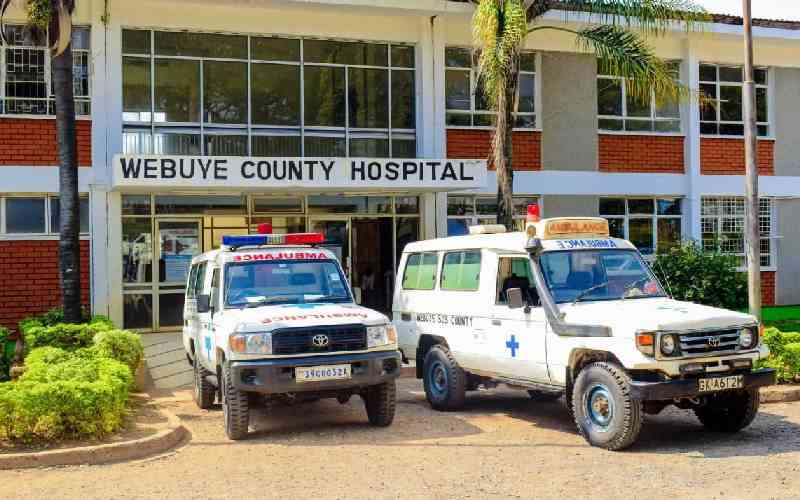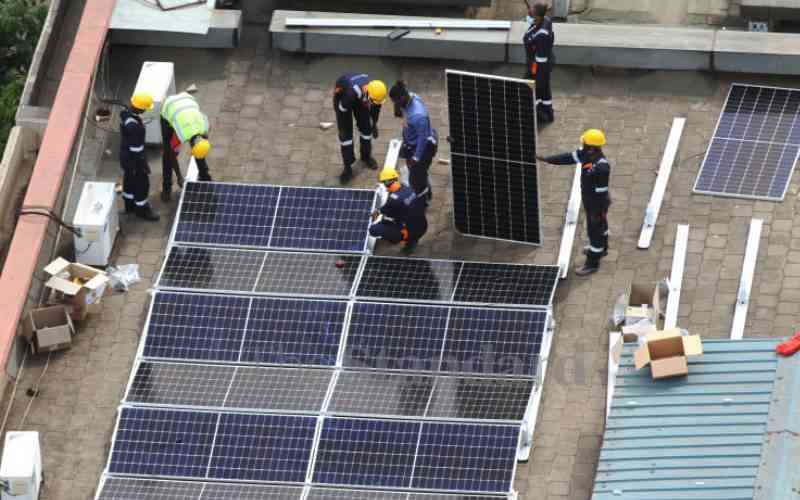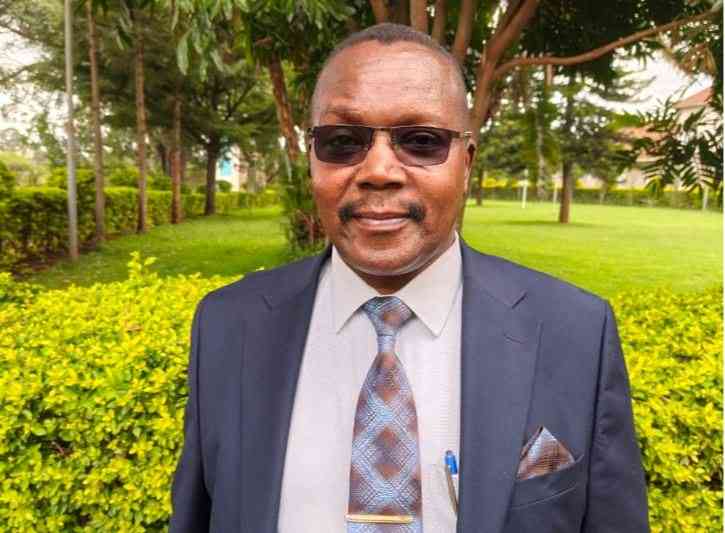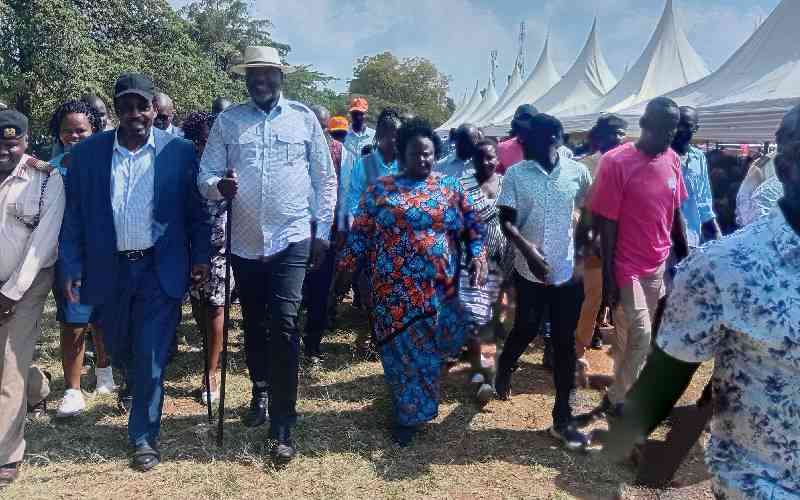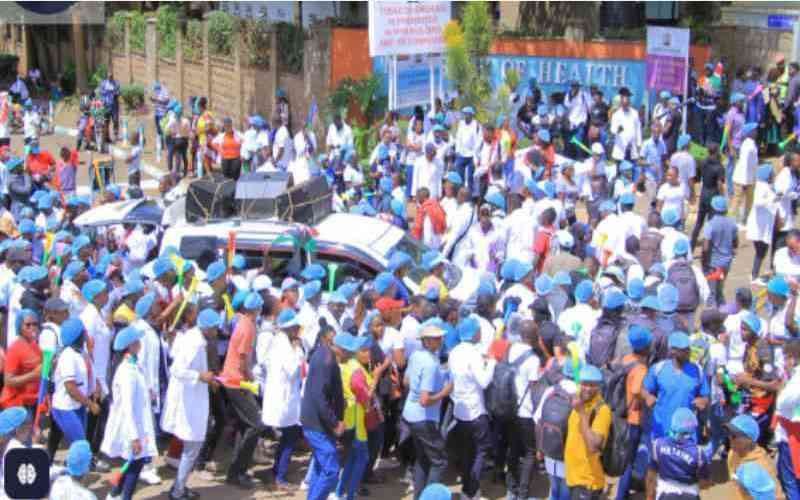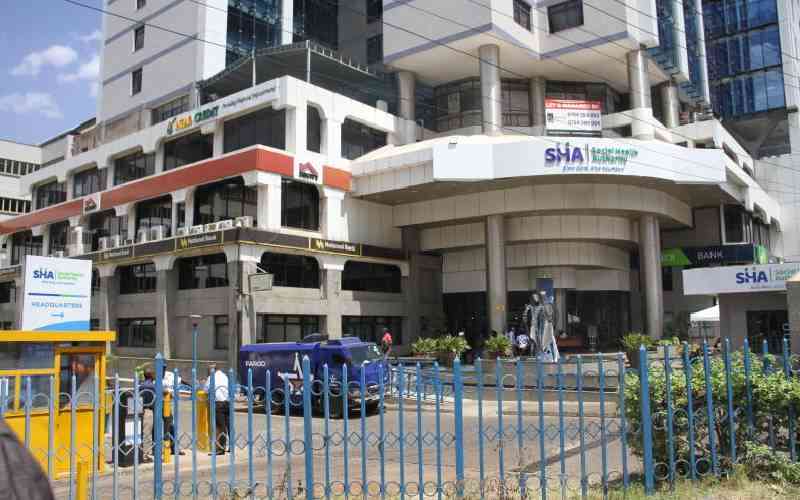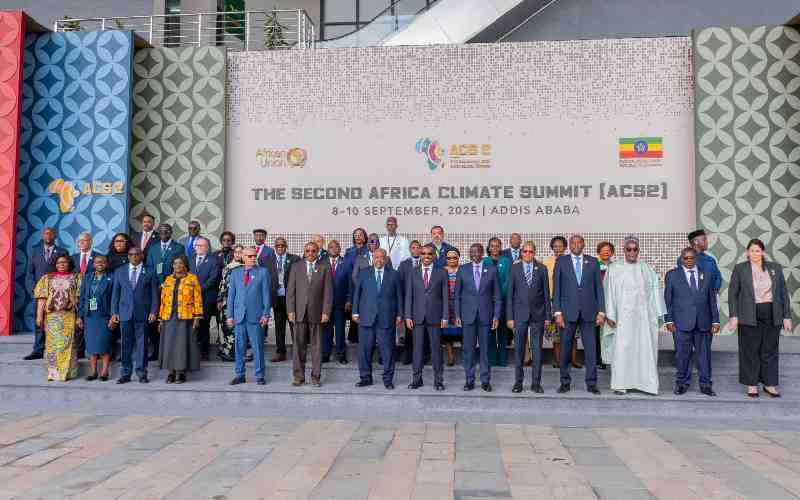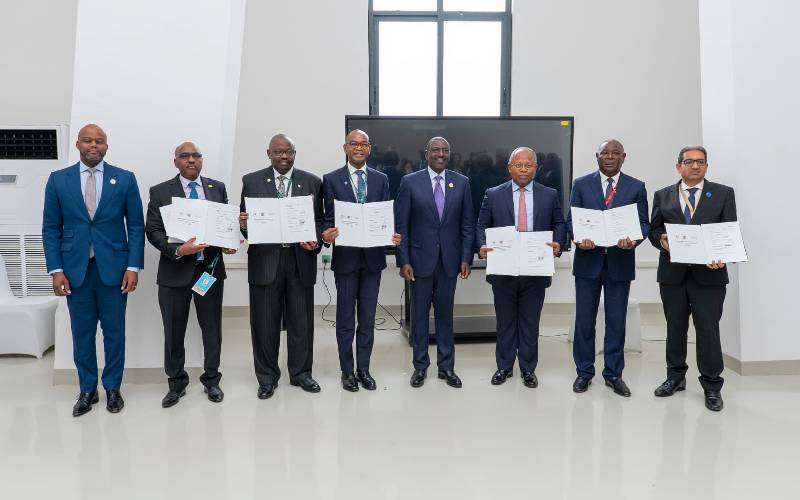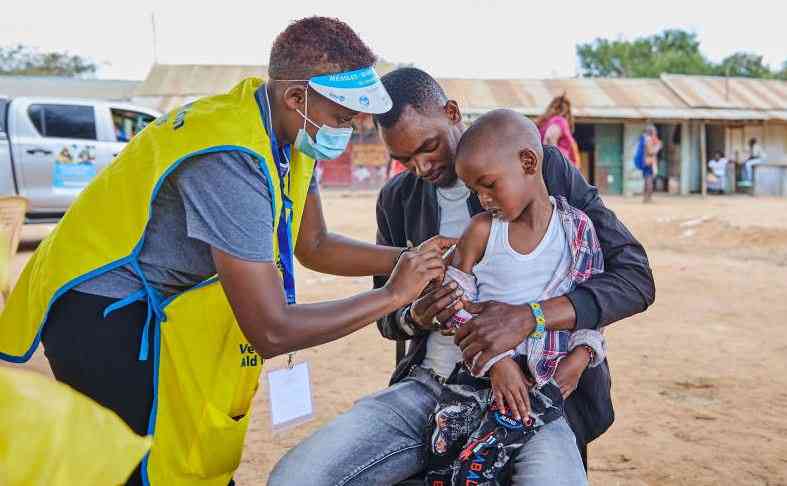
Health experts are warning of a potential resurgence of polio and measles in Kenya if the government fails to step up funding for immunisation programmes.
They say the country risks reversing decades of progress unless urgent action is taken to replace donor support, which has long sustained vaccine efforts but is now coming to an end.
"In the past, before vaccines were introduced, newborns often suffered severe disabilities due to polio," said Prof Ruth Nduati, a paediatrician. "Polio causes lifelong disability, and only vaccination can protect our children."
Prof Nduati further noted that while some children survived infections like measles and polio in the past, the consequences were often devastating.
“In many communities, children survived measles infections—even polio. Among people in their 60s, 70s, and 80s, we still see individuals living with disabilities caused by polio,” she said.
However, with the introduction of polio vaccines in the late 1970s and 1980s, the disease became largely a thing of the past in many parts of the world.
According to Rotary International, polio eradication is one of the most ambitious global health initiatives in history. If successful, polio will become only the second human disease to be eradicated—after smallpox.
- UNICEF warns 14 million children face nutrition service cuts in 2025
- Government urged to avoid reliance on donor funding for vaccines
- How misdiagnosis and donor cuts threaten fight against TB
- Cholera cases surge despite simple and effective containment measures
Keep Reading
In 1988, Rotary helped launch the Global Polio Eradication Initiative (GPEI) in partnership with the World Health Organization (WHO), UNICEF, and the U.S. Centers for Disease Control and Prevention (CDC).
The initiative was later joined by the Bill & Melinda Gates Foundation and Gavi, the Vaccine Alliance.
Experts now warn that unless the Kenyan government steps in to fill the looming funding gap and sustain immunisation coverage, the country risks undoing decades of progress in disease prevention.
The initiative has been successful because GPEI partners with local and national governments to ensure full support of eradication activities, and numerous governments have provided financial and political support for global eradication activities.
Rotary International has been at the center of the fight to eradicate polio for over three decades, with a contribution of more than $2.6 billion dollars and countless volunteer hours to the fight to end polio.
“Together with our partners, we immunize up to 400 million children every year,” notes GPEI report.
When Rotary launched its PolioPlus program in 1985, a thousand children were being paralysed by polio every single day in 125 polio-endemic countries, to date, only two countries are wild polio-endemic-Afghanistan and Pakistan.
Kenya’s routine childhood vaccinations are administered under the Expanded Programme on Immunization (EPI), program driven by the donor.
The support is however coming to an end by 2029, with the donor already threatening not to supply Kenya with vaccines, for failing to honor co-financing of Sh1.6 billion, under the 2025 financial year.
UNICEF has been at the forefront of addressing zero-dose children—those who have never received a single vaccine and remain highly vulnerable.
According to UNICEF’s State of the World Children Report 2023, globally, one in seven children are zero dose.
In Kenya, as per estimates available through the Kenya Demographic and Health Survey 2022, 3 per cent of children have not received their first dose of DTP vaccine.
This suggests that approximately 48,000 children every year are zero dose and most of these children live among the most marginalised communities that face multiple deprivations.
Kenya’s goal is to reduce the number of zero-dose children by 25 per cent by 2025, and by 50 per cent by 2030 through the implementation of targeted outreach programs, mobile vaccination campaigns, and community health strategies aimed at increasing awareness and access to immunisation services.
“The Government of Kenya with the support of GAVI, The Vaccine Alliance, worked on enhancing vaccine supply and logistics, enabling better coverage in underserved areas,” says UNICEF Kenya’s Chief of Health, Luigi D’Aquino.
According to routine information systems, half of zero dose children are found in 14 counties which include Nairobi, Mombasa, Kakamega, Kisii, Trans Nzoia, Kericho, Bomet, Uasin Gishu, Bungoma, Homa Bay, Kilifi, Kitui, Nandi and Wajir.
Nairobi and Mombasa, the two largest cities in Kenya, have the highest concentration of urban informal settlements contributing to more than 60,000 zero dose children, representing about 13 per cent of all zero dose children in the country between 2019 and 2022.
Additionally, 60 per cent of refugees children from neighbouring countries like Somalia have never received any vaccine.
Rotavirus and pneumococcal also prevent and protect children against different types of diarrhoea and pneumonia respectively, leading causes of death in newborns.
In the country, cases of diarrhoea and deaths in newborns have gradually reduced with the introduction of rotavirus have reduced.
“Rotavirus is the commonest cause of diarrhoea in children. If we do not vaccinate, we start seeing a resurgent of severe diarrhoea and dehydration in children,” said Prof Nduati.
Nduati maintains that vaccination and breastfeeding are the most important strategies for ensuring survival of newborns and young children.
Having witnessed multiple cases of disability and deaths in early years as a result of failing to vaccinate children, the paediatrician says she would like to see Kenya maintaining high coverage of childhood vaccine.
She further drums support for local vaccine manufacturing for smooth supply of the vaccines.
“We are not prioritising vaccination. This is wrong, we need to encourage the government to meet its role, we need to have a forward thinking and develop capacity to make the vaccines. The biggest vaccine maker is India, they deliberately invested,” she observes.
Amid anxiety crippling in supply of vaccines, the government remains reluctant to comment on the issue.
 The Standard Group Plc is a multi-media organization with investments in media
platforms spanning newspaper print
operations, television, radio broadcasting, digital and online services. The
Standard Group is recognized as a
leading multi-media house in Kenya with a key influence in matters of national
and international interest.
The Standard Group Plc is a multi-media organization with investments in media
platforms spanning newspaper print
operations, television, radio broadcasting, digital and online services. The
Standard Group is recognized as a
leading multi-media house in Kenya with a key influence in matters of national
and international interest.

